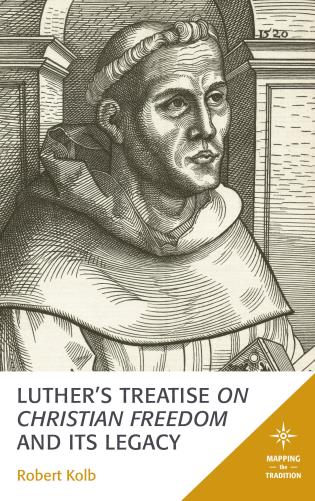Book Review: “Luther’s Treatise On Christian Freedom and Its Legacy”


Lexington Books/ Fortress Academic 2020
Review by Jamieson Spencer
I guess after half a millennium it is high time to re-examine the Reformation. After all, that revolution was a considerable first step in Christianity’s long pilgrimage to today’s more confident and iconoclastic Progressive form. It should be no surprise that some details about that world-changing transition have been ignored, forgotten, or misremembered. Professor Robert Kolb, an Emeritus Professor of Systematic Theology, showed me that Luther’s historic posting those ninety-five theses in 1517 was simply a “normal academic exercise … [intended to encourage] debate among his colleagues.”
Still, there were who many were quick to see the implications, especially “partisans of the papacy [who] sensed a threat to the very foundations of their perception of what the church is.” It was in his 1520 treatise On Christian Freedom, three years later, that Luther began exploring in considerable detail those Theses’ further philosophical, theological and institutional dimensions. Kolb’s microscopic focus on that work, supplemented by a look at some of Luther’s contemporary sermons, provides a chance to see an almost daily evolution in his thinking, and to see the ways he modified it, depending on his intended audience.
Dr. Kolb’s work is genuinely eye-opening—starting with the young monk’s name. The young Martin Luder [sic], followed “the humanist habit of finding a [Latin or Greek] version of his name… [He] played on the Greek for ‘free man’ ‘Eleutherius’” and indeed Freedom lies at the root of his evolving faith: “he never stopped experimenting with new expression and application of that core” for the remaining quarter-century of his life.
Kolb also takes pains to shows us that the young monk’s thinking sprang not from some abstract philosophical reflection, but from his deeply-felt pastoral concerns. As a priest hearing confessions, he “took offense at the claim of those who went outside Saxony to purchase indulgence that issued pardons for all sins.” ( also shows the distinctly unspiritual impetus behind Pope Leo’s expanded sale of indulgences: he needed funds to finance “building Saint Peter’s basilica.”) Luther’s pastoral commitments also helped him appreciate a priest’s responsibility for conveying God’s promise in Christ “through oral proclamation of the biblical method.” The Bible tells the story of God’s promise, but Luther felt that “medieval preaching had too often ignored even the story Jesus and substituted admonitions to follow ecclesiastical regulations and … rules.”
On Christian Freedom “presented Christ as the core of Christian righteousness, and it demonstrated that works in obedience to God’s command are the natural outgrowth of that trust. “In short, “God speaks to his people and tells them what he has done and is doing for them.” The pious Christian trusts further that the it is “the righteousness of Christ that actually creates a new person, the new creature in Christ.” Luther felt that “good works cannot serve as an entry to such a relationship with Christ, because they direct the believer’s attention to their own performance…the mere outward execution of the sacred actions.”
Also eye-opening was the role of technology in helping to effect this crucial transformation. “Luther capitalized on the potential that the printers’ earlier efforts’ to publish the ninety-five theses had uncovered.” He decided to “try his hand at this means of addressing a wider public.” Herr Gutenberg’s invention was helping to shrink the world and spread the Word.
I find a sermon Luther delivered to his Wittenburg congregation late in his life both telling and poignant. “We are secure in the face of the devil and have been liberated for eternal life. We only lack the [full] revelation of that treasure. I have the gift of grace in baptism, in the Lord’s Supper. I receive it in the absolution.”
The pious monk neither doubted nor forsook the eternal vitality of the sacraments still being offered by the Church he was reforming.
~ Jamie Spencer
Jamie Spencer Ph.D. is professor of English at St. Louis Community College. He has taught various adult education classes on Phillip Larkin and C.S. Lewis and reviews books and music for the St. Louis Post Dispatch and The Riverfront Times.
About the Author
Robert Kolb is a professor emeritus of Systematic Theology at Concordia Seminary, St. Louis, Missouri. His major contributions include an edition of the Book of Concord as well as an introductory book of Lutheran theology. Kolb is also the director of the Institute for Mission Studies in St. Louis.[1] He spends much time teaching in various locations around the world including Estonia; India; Oberursel, Germany; and Cambridge, England.
